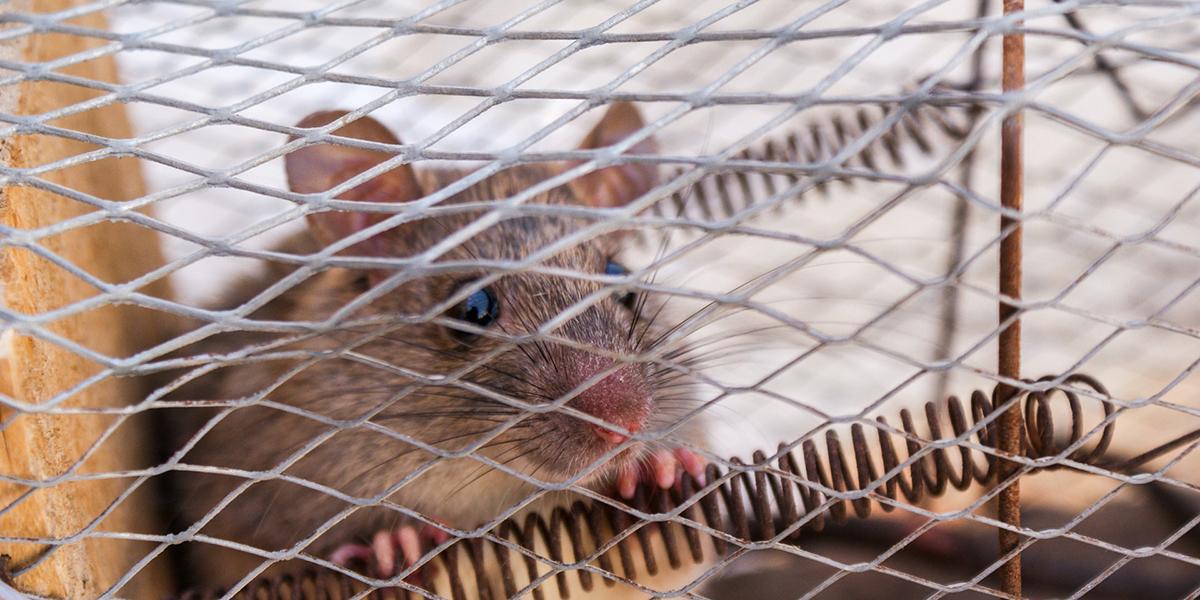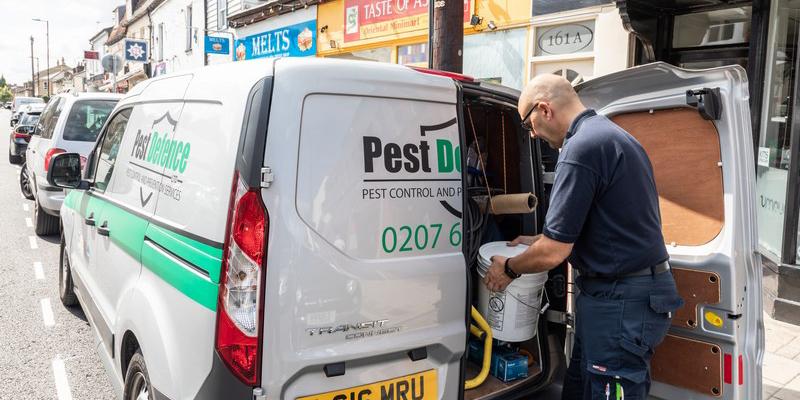Should You Attempt Pest Control Yourself? A DIY Pest Control Guide

The last thing you want when you wake up in the morning is to be confronted with a pest problem. Whether that’s the sound of rats and mice scurrying in your walls, a wasp nest in your garden, insects invading your kitchen or a bird which flies into your home and gets stuck, it’s a real nuisance.
The tempting thing to do in this situation is to try and remedy the situation for yourself with DIY solutions. This is understandable given the distress which pests can cause, but at Pest Defence, we recommend you consider all your options first, as well as the risk of taking action without properly consulting the professionals.
The risks of DIY pest control

Ultimately, our answer to whether you should attempt pest control yourself is generally “no”, since you can do more harm than good. There are plenty of risks, so if you’re thinking of undertaking DIY pest control measures yourself, then it’s worth familiarising yourself with those risks before starting:
- Health: The most obvious risk when tackling pests for yourself is your health and the health of those around you – whether that’s young children in the home or your staff and customers. Most pest control solutions will involve some sort of chemical which, if not utilised properly, can pose a serious health risk. You could end up poisoning someone if your attempts at pest control are scattered and not thought out – including your pets.
You may also end up endangering yourself if you try to confront any rodent, wasp or bird problems as you could startle or anger these pests who may attack in self-defence. These pests could also see you attempting to work at a height, something which is dangerous without the right experience and equipment.
- Environment: The risks to the environment when using chemicals yourself to tackle a pest problem are greater than you think. You could end up damaging your property or worse, kill off your natural plants and lawn outside if you’re trying to spread pesticides.
Another risk to the environment is removing helpful species. For example, bees might seem like a pest but some species are good for the environment. That’s why we will always try to move them to another location or to a local beekeeper.
- Monetary: We all want to get rid of pests without having to spend too much money, but if you don’t know what you’re doing there are several things which could end up costing you money. Firstly, you might do more damage by trying to locate the pest problem than you need to, often resulting in costly repairs for your property. Secondly, you might buy the wrong type of pest control equipment or chemical, so not only will you be out of pocket, but you’ll also still be left with a pest problem.
With these risks in mind, you might be asking yourself – is it worth paying for professional pest control?
Is professional pest control worth the money?

Bearing in mind all of the above, it all comes down to what price you put on your safety and your comfort in your property. In hiring professional pest control experts, such as our team at Pest Defence, you’ll be able to safely and efficiently get rid of pests, giving you back your home without the hassle of trying to figure out how to get rid of them.
Likewise, if your business faces a pest problem, ask yourself if the risk of losing custom, damaging your building and putting people in danger is worth it. Keep your reputation intact by obtaining professional assistance and show both your staff and your customers that you care about their health and wellbeing. At Pest Defence, we can provide a discreet service when carrying out pest control to ensure minimal disruption to your business and your guests.
A third option: remote pest control advice

We understand that during the COVID-19 pandemic, you might be more tempted than ever to tackle a pest issue in your home or business since we’re all trying to isolate and avoid having people around unnecessarily. But still, no one wants to live with a pest problem, right?
As we’ve outlined in this article, you can potentially do more harm than good by taking on pests yourself, which is why we’ve introduced our remote help and advice pest control service. This means that whether you’re self-isolating or aren’t allowed to have anyone visit due to local restrictions, we can still provide you with our specialist advice.
The way we operate this service is that you call us over the phone or via a video call and we’ll then diagnose the issue you’re facing. From there, we charge a small fee over the phone securely before delivering our specialist advice on how to deal with the pest problem. We’ll talk to you about what the issue you’re facing is, our recommendations for how to treat it yourself, as well as which products are best to use and how to use them.
If we feel it’s necessary, we can recommend a contact-free pest control appointment where we can carry out our services in a safe, socially distanced manner to alleviate you of your pest issue.
Tips for pest prevention
One of the best ways to ensure you don’t end up facing the dilemma of trying to solve a pest issue is to take preventative steps before an infestation can happen in the first place. Here we’ve got some key tips for pest prevention which may help you in the long run.
- Keep foodstuffs hidden away and clean up regularly, don’t give pests a target
- Don’t let water accumulate in your property as some pests thrive in damp conditions
- Keep your home and garden tidy, don’t give pests anywhere to hide or make a nest
- Always seal up entry points to your home such as cracks in your wall or gaps around windows and doors
- Find out about the pests local to your area to better understand how to prevent them getting into your home
If you’d like our advice on your pest problem via our remote help and advice service for pests, or to arrange a visit from a member of our pest control team, simply call today. We operate throughout Basildon, Billericay, Braintree, Central London, Chelmsford, Colchester, Epping, Halstead, Harlow, Maldon, Outer London, Romford, Southend and Stansted.


